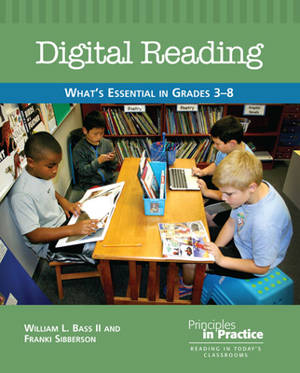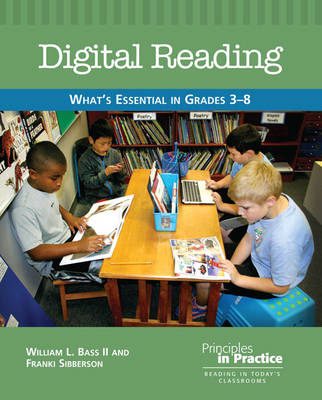
- Retrait gratuit dans votre magasin Club
- 7.000.000 titres dans notre catalogue
- Payer en toute sécurité
- Toujours un magasin près de chez vous
- Retrait gratuit dans votre magasin Club
- 7.000.0000 titres dans notre catalogue
- Payer en toute sécurité
- Toujours un magasin près de chez vous
Description
Many of our young students come to school with vast experience in the digital world but too often use digital tools in limited ways because they view technology as merely another form of entertainment.
Educators William L. Bass II and Franki Sibberson believe that teachers can help students recognize their expertise in out-of-school digital reading and extend it into the world of school. For this to happen, we need to redefine reading to include digital reading and texts, learn how to support digital reading in the classroom, and embed digital tools throughout the elementary and middle school curriculum.
Bass, a technology coordinator, and Sibberson, a third-grade teacher, invite us to consider what is essential in integrating technology into the classroom, focusing especially on authenticity, intentionality, and connectedness. They explore the experiences readers must have in order to navigate the digital texts they will encounter, as well as the kinds of lessons we must develop to enhance those experiences. Always advocating for sound literacy practice and drawing on the NCTE Policy Research Brief Reading Instruction for All Students, they lead from experience--both theirs and that of other classroom teachers, grades 3-8.
Spécifications
Parties prenantes
- Auteur(s) :
- Editeur:
Contenu
- Nombre de pages :
- 122
- Langue:
- Anglais
- Collection :
Caractéristiques
- EAN:
- 9780814111574
- Date de parution :
- 03-05-15
- Format:
- Livre broché
- Format numérique:
- Trade paperback (VS)
- Dimensions :
- 185 mm x 231 mm
- Poids :
- 258 g

Les avis
Nous publions uniquement les avis qui respectent les conditions requises. Consultez nos conditions pour les avis.






